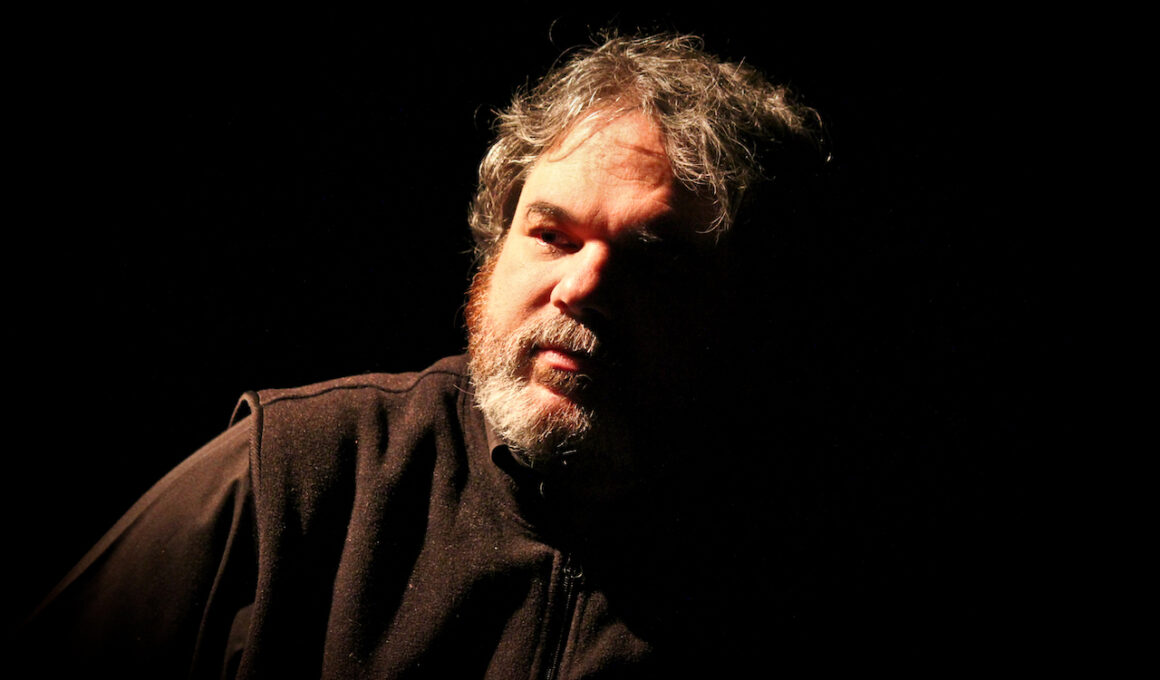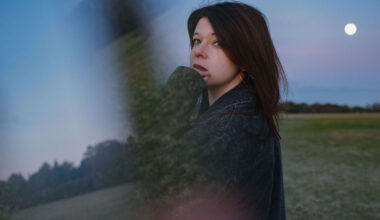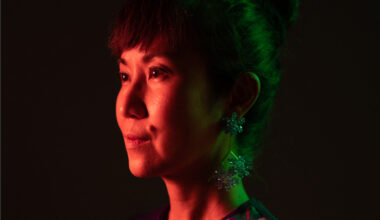Sandeep Bhagwati is a multiple award-winning composer, theatre director and media artist. Born in Bombay, he studied at Mozarteum Salzburg (Austria), Institut de Coordination Acoustique/Musique IRCAM Paris (France) and graduated with a Künstlerisches Diplom in Composition from Hochschule für Musik und Theater München (Germany). His more than 80 large scale compositions, multi-media projects and comprovisations in all genres (including 6 operas) have been performed by leading performers at leading venues and festivals worldwide.
He has curated and directed several international music festivals (A*Devantgarde München, KlangRiffe Karlsruhe, Rasalila Berlin). He has directed and participated in several intercultural exchange projects with Indian and Chinese musicians and leading new music ensembles, such as Ensemble Modern and Klangforum Wien. Since 2013, he also is the artistic director of the trans-traditional new music ensemble “Ensemble Extrakte” Berlin, and since 2015 also of “Sangeet Prayog” Pune (India) and has conducted similar trans-traditional ensemble projects in Montréal, Oslo, Istanbul, and Toronto. His work is partially available on labels such as dreyer gaido (Osnabrück) and noland records (Berlin) – but most widely on YouTube.
He was a professor of composition at Karlsruhe Music University, and Composer-in-Residence at the IRCAM Paris, ZKM Center for Arts and Media Karlsruhe, Beethoven Orchestra Bonn, Institute for Electronic Music Graz, CalArts Los Angeles, Heidelberg University and Tchaikovsky Conservatory Moscow. He also was a guest professor at Heidelberg University in 2009 and University of Arts Berlin in 2013/14 and, as a researcher, has published widely in academic and non-academic contexts.
FACTS
1. I like to wear hats – fedoras, panama hats and tweed caps.
2. I love to sit for hours in a traditional Viennese Kaffeehaus or in a Mumbai Irani restaurant or in a deep hotel lobby armchair – writing, reading and daydreaming.
3. There is a tiny chapel high above Lake Como in whose stained-glass windows an artist has immortalised a concert experience with my music.
QUESTIONS
1. What is the biggest inspiration for your music?
The cultural and individual differences in the way we mentally construct, experience and listen to the world we live in.
2. How and when did you get into making music?
When I first sang a solo in public – a German christmas carol at my kindergarden in Bombay, looking out on the Arabic Sea a few feet away.
3. What are 5 of your favourite albums of all time?
1. Nazakat & Salamat Ali Khan perform Raag Darbari Kannarra
2. Herbert Blomstedt conducts Jean Sibelius’ Seventh Symphony
3. The Heart of Silence Xander Zimmermann plays Antonio de Cabezon
4. “Etüden, Heft 1-3” by György Ligeti
5. „News for Lulu“ – John Zorn, George Lewis, Bill Frisell
4. What do you associate with Berlin?
Absolute summer freedom when riding home on a bike from a concert late at night. The only time and place in my life (Moabit 2001-2005), when I had a dedicated room to compose in. The bitter cold of pre-2000 Kreuzberg winters. Our children being born in spring at Virchow hospital. Parties in Detjen’s garden. The ease of leaving from and arriving at Tegel Airport. Lazy picknicks with our children in the Tiergarten.
5. What’s your favourite place in your town?
I am a Native Alien. There is no town I could call MY town: I live in three or four towns almost as if they were home – and then again not. Anyway: No favourite place can top being near my wife, wherever we are.
6. If there was no music in the world, what would you do instead?
No human world is possible without music, so the question is moot. But if I could not have made music my life, I would probably have become either a poet or a mathematician. Unprofitable professions seem to be very attractive to me.
7. What was the last record/music you bought?
I nowadays usually get albums as an exchange gift from colleagues, so I do not recall the last one I actually bought.
8. Who would you most like to collaborate with?
I have been lucky to be able to collaborate with most of my private heroes already – no open wishes here, except the always open hope for a fortuitous spark of collaboration with someone whose work I do not yet know.
9. What was your best gig (as performer or spectator)?
In a career that spans more than 30 years, that is a hard question to narrow down to.
Top SEVEN:
1998 world premiere of my opera “Ramanujan” at the Munich Biennale for Contemporary Music Theatre
2002 “Dictionary of Winds” for Chinese and Western orchestras and singers, Maerzmusik Berlin
2006 “Atish-e-Zaban” sung by the Neue Vocalsolisten at the World Music Days in Stuttgart
2007 “Vineland Stelae” with Mike Svoboda and 16 musical groups distributed the audience at R.E.D.C.A.T. Theatre in Disney Hall, Los Angeles
2017 “Niemandslandhymnen” for 10 musicians and live electronics in a trans-traditional all star cast at Usine C Montréal
2019 “Music of Crossings”, my 3 hour piano score, played by Moritz Ernst in its totality for the first time at the Bayerische Akademie der Schönen Künste
2021 “Re-listen to my re-making of your re-sound” Iterative concert series with my ensemble “Extrakte”, Kulturbrauerei Berlin
10. How important is technology to your creative process?
At my lab at Concordia University, I co-develop digital softwares and technologies for musicking myself – so very important. But on the other hand: even a singing voice is a use of technology, as is every instrument ever made – so music without technology is something no one has ever tried. As humans, we are unable to think, feel, survive without technology.
11. Do you have siblings and how do they feel about your career/art?
I have two sisters, none of them artistically inclined. I think they humour my quirkiness because we just love each other. They would, of course, prefer to be invited as VIPs to a red-carpet event, or see my work more recognized in mainstream media – but in experimental music, such things do not happen. Yet they seem proud enough, and actually talk me up to their friends.


